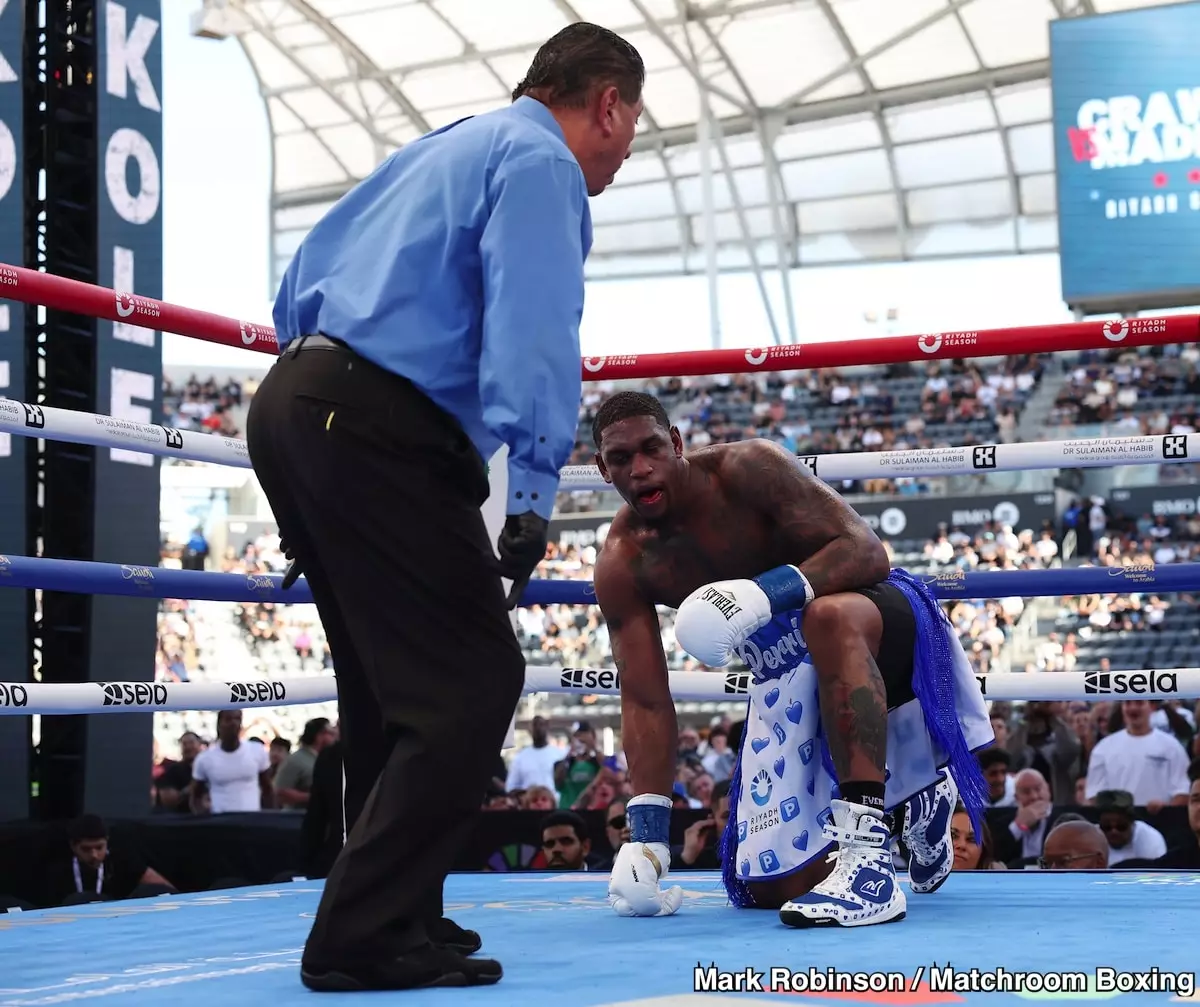Jared Anderson, once a beacon of hope in the heavyweight boxing division, captured attention with a series of impressive victories against notable opponents like Jerry Forrest and Andriy Rudenko. His explosive style and dynamic performances established him as a fighter with a promising future. With an undefeated record bolstering his confidence, Anderson was poised to ascend the ranks of heavyweight boxing. However, like many fighters before him, the transition from prospect to established contender can be fraught with challenges, particularly when faced with adversity.
The turning point came during his bout against “Prince” Charles Martin, where Anderson’s defensive shortcomings became evident. While he secured a decision victory, the contest raised eyebrows among fans and analysts alike. Questions about the solidity of his defense loomed large, leading to speculation about whether Anderson was ready for tougher challenges. The nail in the coffin, however, was a devastating defeat against Martin Bakole, an encounter that left Anderson’s undefeated status in tatters. Rather than breaking him, the loss could represent a necessary recalibration in his approach to the sport, yet his seemingly nonchalant reaction post-fight stirred concerns about his mental fortitude.
Recovering from a defeat is a crucial juncture in any athlete’s career. Some fighters emerge stronger, their resolve steeling them for future challenges, while others find it difficult to regain their footing. Anderson’s initial response to his loss, marked by a casual demeanor, presented a double-edged sword. It may either signify a mature acceptance of the harsh realities of boxing or indicate a troubling detachment that could hinder his ability to regain confidence. Returnee fighters like Anderson often walk a fragile line between bounce-back resilience and lingering self-doubt.
The upcoming fight against Marios Kollias in New York poses both an opportunity and a risk. On paper, Anderson is favored to win against Kollias, a fighter with a record that might not accurately reflect the pressure of facing someone returning from a loss. Yet, this fight is more than a mere statistic; it’s a litmus test for Anderson’s mindset post-defeat. The challenge lies not solely in the physical aspect of boxing but also in confronting internal fears that may have surfaced during his defeat.
Boxing is notoriously unpredictable, particularly in the heavyweight division, where a single punch can change the tide of a match. With a record of 17-1 (15 KO), Anderson’s power and skill are not in question; what remains is the psychological preparation required to face an opponent who, while less experienced, poses a genuine threat. The stakes are raised when considering the implications of this fight not just for Anderson, but for the boxing community’s perception of his potential. Should he falter against Kollias, the narrative surrounding Anderson could shift from star on the rise to a cautionary tale of fallen prospects.
Conversely, a solid showing could reinstate him as a contender, giving him a platform to demonstrate learned lessons and renewed determination. The boxing fraternity often relies on narratives; victories can rewrite a fighter’s story, but losses linger in the collective memory, casting shadows over future bouts.
As Anderson prepares to step back into the ring, he faces not only Kollias but also the critical scrutiny of fans, analysts, and himself. The question looms: can he transcend the weight of defeat and emerge stronger, or will he succumb to the pressures that come with high expectations? The answer may unfold in the coming fight, where much more than a record is at stake. For Jared Anderson, this represents a pivotal moment—a chance for redemption and an opportunity to reaffirm his ambitions within the heavyweight division. The boxing world watches with bated breath, ready to see what the future holds for “The Real Big Baby.”


Leave a Reply